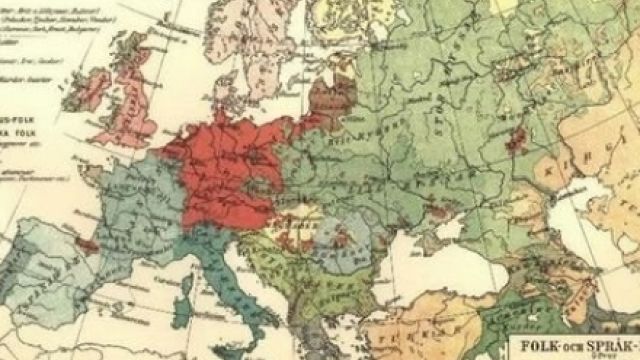The expressions for ‘translate’ and ‘interpret’ in the European languages (work in progress)

Presented as part of the Language Change Seminar Series
The words for ‘translate’ and ‘interpret’ are interesting in two respects:
1. They show how concepts are formed
2. They demonstrate paths of cultural influence in Europe
Not all European languages distinguish the two concepts.
The Romance languages inherited the words both for ‘translate’ and ‘interpret’ from Latin, although there is a question whether these are inherited words or learned borrowings.
English borrowed these words either directly from Latin or via French.
Rumanian has traduce, traducere for ‘translate’: is this inherited or a learned re-latinization? The expression for ‘to interpret’, a tălmăci, is borrowed from Slavonic (OCS tlъmačiti).
The Germanic and Slavonic languages created words for ‘translate’ by calquing Latin expressions, the exception being Dutch vertalen (“niederländisches Eigengewächs” – Århammar).
Otherwise the Germanic languages have calques derived from Middle Low German översetten and Middle Dutch oversetten and overstellen (eastern Netherlands, 14th C.)
The Sl expressions prěvesti / prěložiti are claimed to be calques but since they occur in one mediaeval text this is at least open to question.
It is interesting that the European languages (apart from Dutch) apparently could not come up with a general expression for the concept of ‘translate’ (i.e., apart from the “zielsprachgerichtete Bezeichnungen” such as Ger eindeutschen ‘to turn into German’, Danish fordanske «to make Danish» ‘to turn into Danish’, forsvenske «to make Swedish» ‘to turn into Swedish’). However, the problem is proving a calque. What we have is circumstantial evidence but no smoking gun. But translation is an eminently cultural concept, as part of written culture it is by its very nature subject to influences from other languages.
On the other hand, Lat interpretārī could not be calqued because it is not amenable to easy etymological analysis. The Sl languages had an original expression for ‘interpreter’, *tъlkъ, from which the words for ‘interpret’ were derived. MLG borrowed this Sl word, *tъlkъ, which then passed into the Scandinavian languages. Ru (now obs.) tolk ‘interpreter’ was borrowed into Lithuanian tùlkas, Latvian tulks, Estonian tulk, Middle Dutch tolk, Old Norse tulkr, Dutch tolk.
However, contemporary Ru and Bg have no special word for ‘interpreter’ («oral translator»). The other modern Sl languages and Ger have borrowed a word for ‘interpreter’ ultimately from Turkic (CSl tъlmačь, Ru † tolmač, Cro tumač etc.).
The archaic Engl expression dragoman is borrowed ultimately from Arabic via various other European languages.